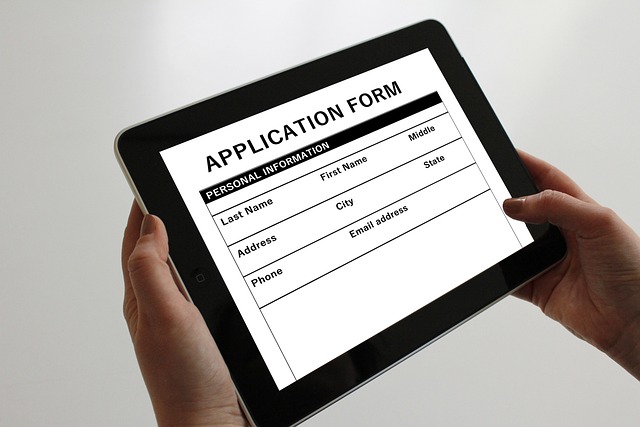VA Enrollment May Become Automatic for Transitioning Veterans

Could VA Enrollment Become Automatic for Transitioning Veterans?
On January 20th, 2022, the House of Representatives passed The Ensuring Veterans’ Smooth Transition Act. Also known as the EVEST Act, H.R. 4673 would make enrollment into the VA system automatic for transitioning service members.
Passing the EVEST Act
The EVEST Act was first introduced in July 2021 by Representative Takano (D CA-41), the chairman of the House Veterans’ Affairs Committee. It will now head to the Senate for review and debate.
“Today, the House took an important step to simplify the transition process and help prevent veteran suicide by passing my EVEST Act,” declared Takano in a press release. “We know that the months following a transition out of the military can be very stressful and particularly risky for new veterans in terms of mental health.”
Here, Chairman Takano referred to the tragedy of veteran suicide after leaving the service.
SEE ALSO: New Legislation Impacting the Veteran Community
The Text of the EVEST Act
This legislation appears to be only about the automatic enrollment of Veterans into the VA system. Often, a legislation’s title does not convey everything contained within it.
The text of the EVEST Act determines that the Secretary of Veterans’ Affairs “shall enroll each veteran…in the patient enrollment system” within 60 days of determining their eligibility. Currently, the task of determining a Veteran’s eligibility for automatic enrollment falls to the Defense Manpower Data Center of the Department of Defense.
>> Have a question about your or your spouse’s military benefits? We’ve partnered with the Veterans Education Project to help find the answers you need. Find the answers to your benefits questions today!
Electronic Certificates of Eligibility
Currently, the EVEST Act states that by August 1, 2022, all veterans eligible for automatic enrollment will be able to access an electronic version of their Certificate of Eligibility (CoE). The CoE is the key that unlocks all of a Veteran’s access to VA benefits.
Additionally, the legislative language determined that there should also be an electronic mechanism that a Veteran could use if they wanted to opt-out of automatic enrollment.
This is a cool idea because submitting paperwork to the VA can take ages, and I’ve personally sat on hold for hours waiting to talk to a human. So, an electronic means of opting-out is a refreshing change.
The text of the EVEST Act also includes the requisite mandate to the Secretary of Veterans Affairs to give Congress an update on how things are going within 1 year of the first automatic enrollment.
The Cost of Automatic Enrollment
The Congressional Budget Office (CBO) estimates that implementing The EVEST Act would cost $3.1 billion from 2022 through 2026.
The CBO’s estimate expects that the automatic enrollment of transitioning veterans would add an extra 58,000 veteran patients per year beginning in 2022. They expect similar numbers for each year afterwards.
They then estimate that around 250,000 would remain enrolled by 2026, even after accounting for a prescribed number of voluntary disenrollments. The care that each Veteran would receive is expected to cost approximately $3,900 per year.
Additionally, the CBO estimates that the Information Technology costs associated with implementing the electronic services proposed in the EVEST Act would cost $2 million over the 2022-2026 time period.
Opposition to the EVEST Act
There were 163 Representatives who voted against the EVEST Act. There are some common threads as to why the legislation met with opposition.
Representative Claudia Tenney (NY-22) opposed the EVEST Act for privacy concerns and a lack of Congressional discussion surrounding the provisions in the text.
“I am firmly committed to ensuring all eligible veterans can easily access quality care through the VA. However, this bill would enroll veterans in the VA care system without their knowledge or consent leading to confusion, administrative burdens, and potential costs and disruptions for veterans,” Tenney said on her website.
Representative Tenney went on to lament that there had not been one hearing regarding this legislation. There were no congressional attempts to bring the VA and members of Congress together.
She’s not wrong.
According to Roll Call 14 for H.R. 4673, the voting was done by proxy. That means that the representatives had the option to vote remotely. In fact, the record shows that not one representative was even present to cast their vote.
There must be an app for that.
The Legislative Process
So, the legislation moved to the Senate and there was no discussion about the EVEST Act outside of the House Veterans’ Affairs Committee.
As of this writing, the legislation has not posted on the Senate calendar. Furthermore, it is unlikely that it will be added any time soon, but these calendars change all the time.
When there is forward motion regarding the EVEST Act, we will keep you posted!
What are your thoughts on this issue? Should enrollment in VA health care become automatic?
>> Have a question about your or your spouse’s military benefits? We’ve partnered with the Veterans Education Project to help find the answers you need. Find the answers to your benefits questions today!
RELATED:
- Military and Veteran Benefit Changes for 2022
- The FY2022 NDAA Brings 12 Weeks of Paid Parental Leave
- TSP Changes and Limit Updates for 2022
- COLA to Increase 5.9% for Retirees, Disabled Veterans in 2022


